We left the beautiful Parador Hotel in Santo Domingo as we headed for Belorado today. Lots of small towns and wheat fields today. Saw the funniest sign, but didn’t take a pic as it was covered with graffiti. It said: Yay God, Boo Devil. Made us smile. Below, leaving Santo Domingo.
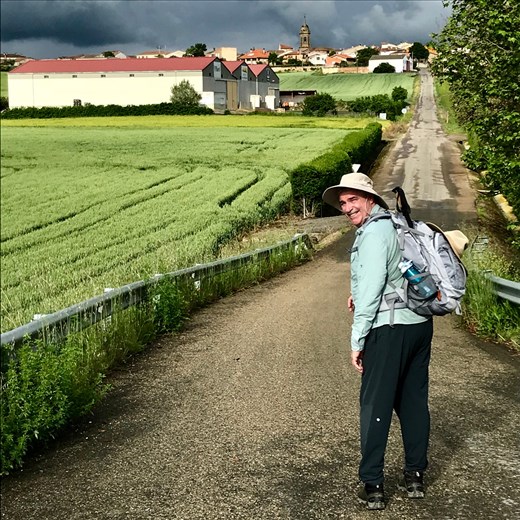
We found this very cute mobile coffee/snack bus in Granon, population 307.
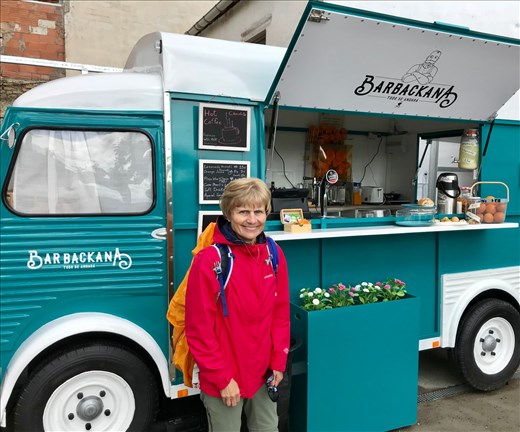
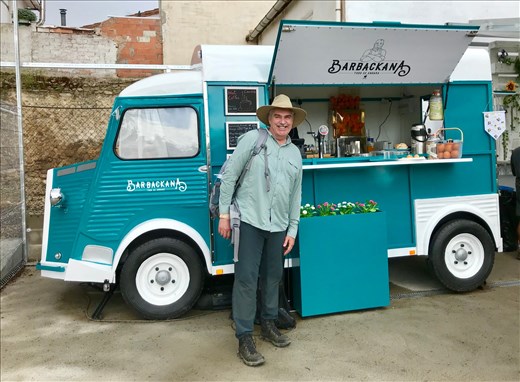
Every town, even the smallest, has a Catholic church. And we're not talking a few rooms in a strip mall. These massive structures are hundreds of years old and made of huge stones. The craftsmanship is astounding.
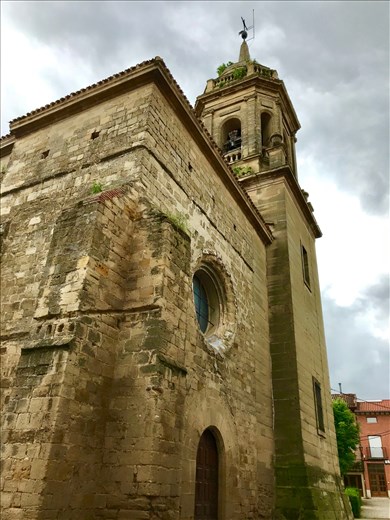
A typical street scene in Granon.
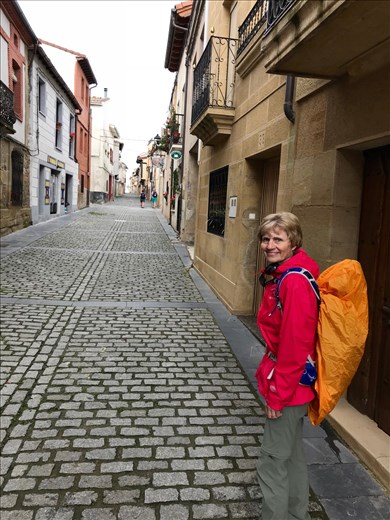
As we crest our first hill of the day we come upon this really tall sign in the middle of nowhere that illustrates the Camino trail in the Castile of Leon, the largest autonomous region in Spain. We will walk through this region for about 400 km until we come to the Galicia region near O Cebreiro. We will talk (whine) more about O Cebreiro later as it is a major climb on a double stage of the journey. We remember it vividly from 2016.
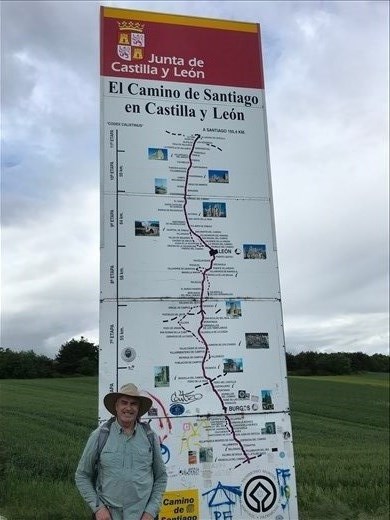
I wanted to hike over this snow-capped mountain, only a slight detour, but Jeff said no. Haha. You all know how I feel about snow.

The graveyards and mausoleums in Viloria de Rioja, and all of the regions we've seen so far, are behind walls and locked gates. In Galacia, they are more open. I was able to capture a photo through the gate.
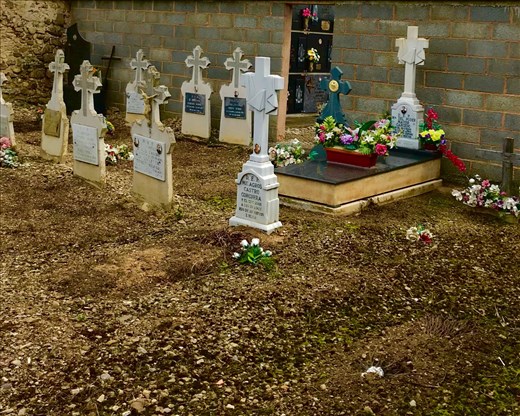
This is our quaint room in Belorado. The Hotel has rock walls inside and out. Beautiful. Belorado was settled by the Romans in the 10th century. It has a population of 2,140 now, but evidently in the 13th century it was hoppin.’ Then it had eight churches, an annual fair and two pilgrim hospitals. The city is known for its leather goods.
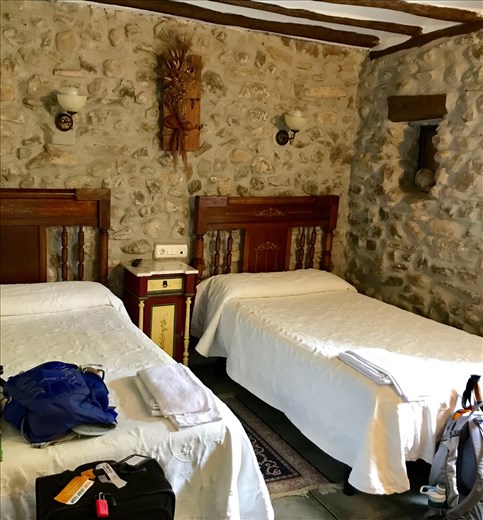
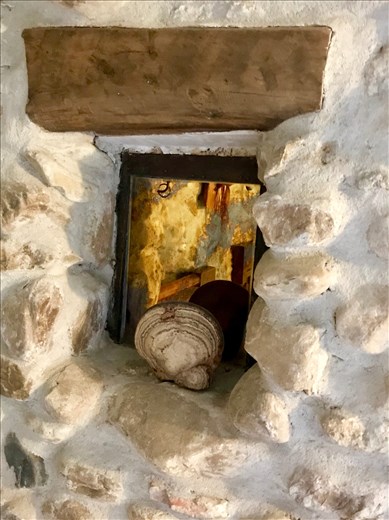
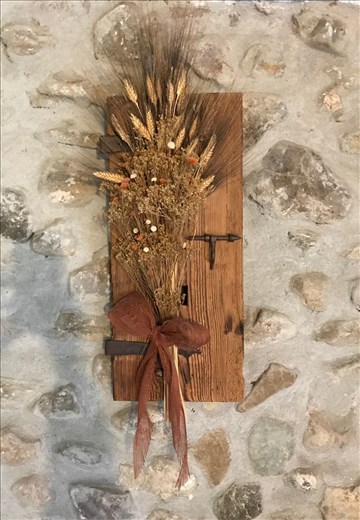
We left Belorado early as today's journey is nearly 19 miles and over the Oca hills, which in medieval times were a dangerous route filled with thieves. We made it across without incident. As we leave town toward Tosantos we see “Our Lady of the Cliff,” built into the rock above the town.
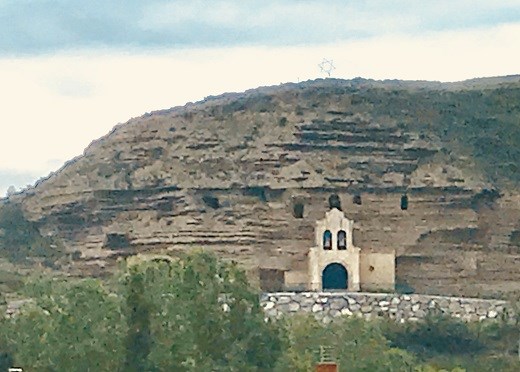
We stop to rest our feet and have a cold drink in several of the small towns along the way today. This is Villambistia below. The churches are an iconic feature of every town and often sit on the highest point in the village. They are recognizable from several miles away on the trail.
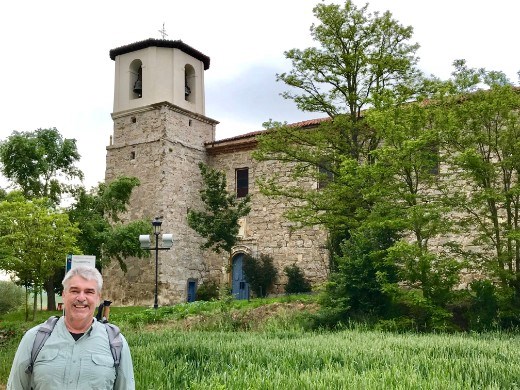
The vista overlooking Espinosa del Camino.
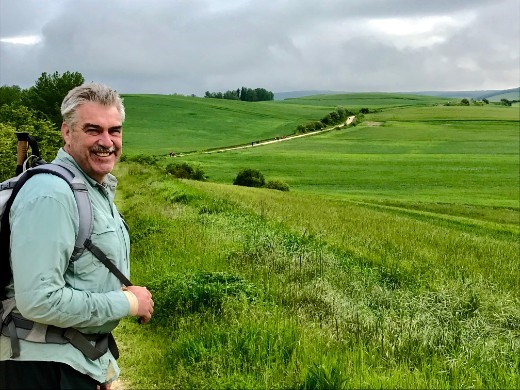
Met these cuties on the Oca hills. The two girls, 13-year-old Angelica and 11-year-old Sandelie are from Belgium and 8-year-old Andre is from France. The hills were no challenge for these kids! Andre would run ahead and then run back to the girls, then run ahead again. We were hyperventilating just watching him.
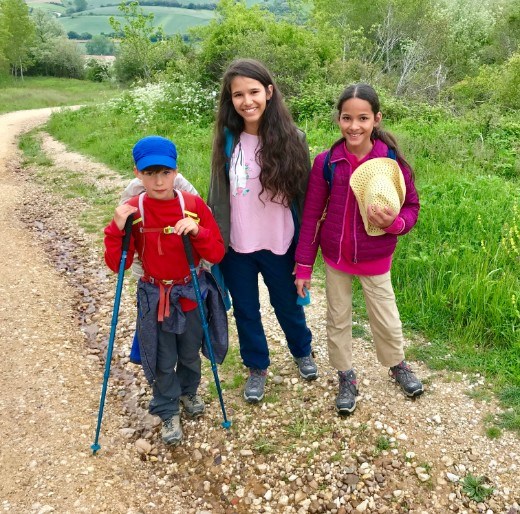
We stopped briefly to watch some logging activity on top of the Oca hills. These pine logs are cut to exact length before being hauled to the sawmill.
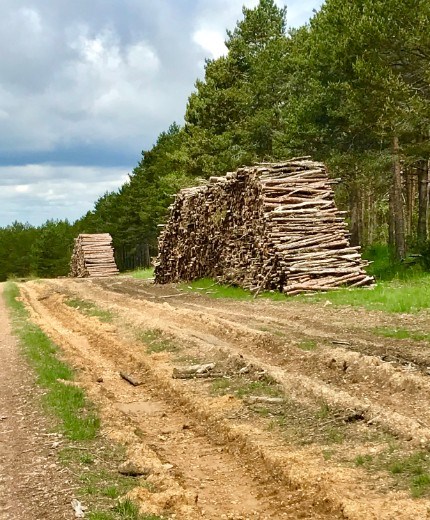
The trail down the hill into San Juan de Ortega is lined with pine and oak trees. The couple you see below are Tina and Jimmy from Oahu. We walked with them for about a mile and traded "stories." You all know the one who tells tall tales on the trails--Phoenix, Spain, wherever.
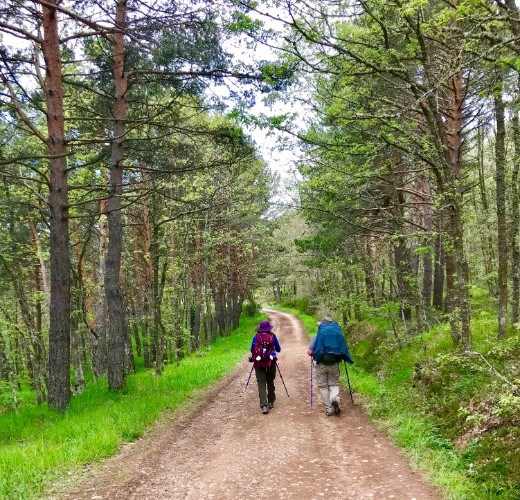
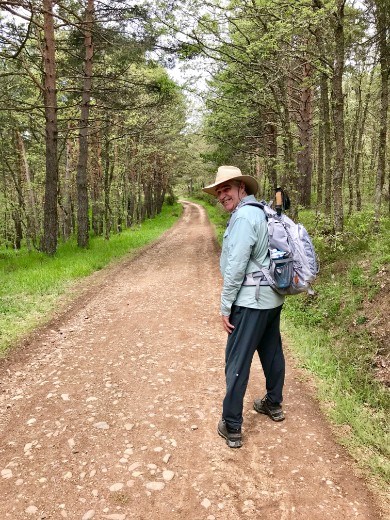
Even the weeds that line the ditches are beautiful in Spain!
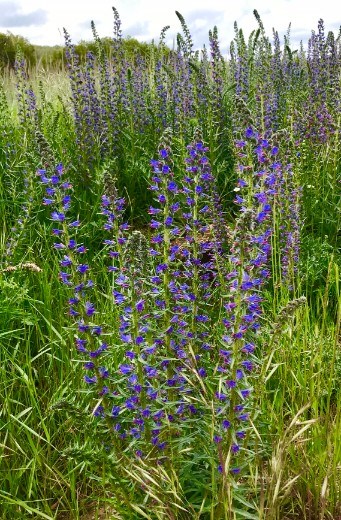
The cathedral in San Juan de Orgeta, houses the tomb of St. Juan de Ortega and offers a daily evening mass to pilgrims passing through. We sat at a table across from this historic site and had some yummy bocadillos (sandwiches) for lunch. Not ever sure exactly what’s in them, but who cares, they’re great.
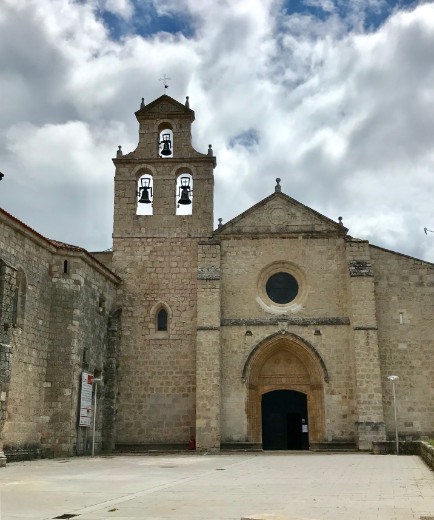
Historic bridge along the Rio Vena outside Ages. Just past Ages is the town of Atapuerca which boasts an archaeological site acknowledged as a UNESCO World Heritage Site with a large body of prehistoric humanoid artifacts. Some sources say more than 90 percent of all such artifacts found in Europe.
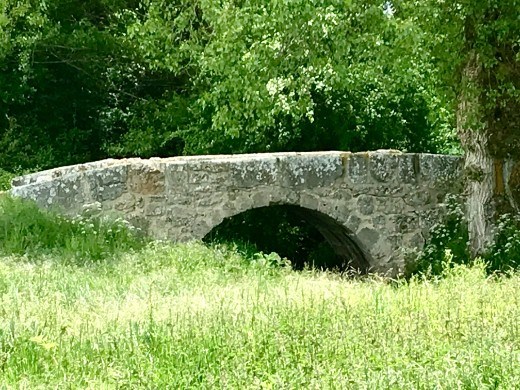
One of us has a few ouchies and both of us are a bit tired after our 19 miles today. One of us perhaps more so as I heard him hollering and laughing from the bathroom. He forgot to remove his calf sleeves before getting into the bath. Oh well, they needed washing anyway.